<p>WAHIAWA, Hawaii - It has happened to all of us. You're running late for work, scampering around the house grabbing everything you need for the day, and you can't find your keys. </p><p>After experiencing this situation one morning, military family member Lauren Novotny put her recent puppy training skills to the test. </p><p> "Bring me my keys, Val," Novotny said to a special 2-year-old labradoodle. </p><p>A few moments later, Val appeared at Novotny's feet, dropped the keys and waited patiently. </p><p>Puppies are trained to do a variety of tasks at Hawaii Fi-Do Service Dogs, the only certified training center on the island of Oahu. The dedicated mission of the nonprofit corporation is to train assistance dogs to provide physical, psychological and therapeutic support for people who face the daily challenges of life with a disability other than blindness. </p><p>Having in-home puppy raising care provided by the community enables the organization to have more dogs in the program. Puppies are placed in volunteer homes for an average of three to four months of training. </p><p> "Val is still young," said Novotny. "I'm teaching her very basic skills, but she is responding." </p><p>Novotny felt a calling to volunteer for Hawaii Fi-Do, stemming from her love of animals and a desire to reach out to the community. </p><p> "This is the most rewarding program I've ever done," she said. "I see the help the dogs are providing when placed with owners, and I helped raise them." </p><p>Hawaii Fi-Do interviews each family or individual interested in becoming a puppy raiser, sharing the good and the bad of the program. </p><p>Susan Luehrs, director, Hawaii Fi-do, said raising a puppy is a lot of work, time, training and meetings, but the rewards are priceless. The responsibility of a puppy raiser is to teach the puppies basic obedience as well as expose the future guide dogs to everyday situations. </p><p>Hawaii Fi-Do is extremely flexible in the involvement of the trainers. </p><p> "Some families can only help out on weekends, and many help out only for a short time," said Luehrs. "We need the help, so we tend to make it fit." </p><p>Each puppy is trained over a two-year period. Each dog in training must pass high standards of health, behavior, obedience and skill training in order to become a certified service dog. </p><p>Service dogs are then individually trained to do work or perform tasks for the benefit of an individual with a disability. They can provide physical assistance, companionship, psychological and social benefits. They learn specific tasks along with basic obedience and social skills. </p><p>A service dog can open and close doors, retrieve, pull a manual wheelchair, find the phone, turn on and off switches, and much more. Hearing dogs respond to different sounds including knocking, the doorbell, a timer, alarm clock, smoke alarm, telephone, baby crying and the person's name. </p><p> "Hawaii Fi-Do is working hard to educate the public on what these dogs can do," said Army family member and volunteer Kristen Rothwell. "This organization allows deserving people the access to dogs that can provide a great service." </p><p>Puppy trainers and volunteers are always in high demand at the facility. Puppy raising is a great way to attain the benefits of having a pet while living the transient military lifestyle. </p><p> "Families have the memorable experience of raising a special dog that some day will help a person with disabilities lead a more independent life," said Luehrs. "They are proud to see the progress (of the dogs) and know that they had a part in it."</P>
Military ohana open hearts, homes to raise service dogs
By Molly Hayden, U.S. Army Garrion-Hawaii Public AffairsJuly 3, 2008
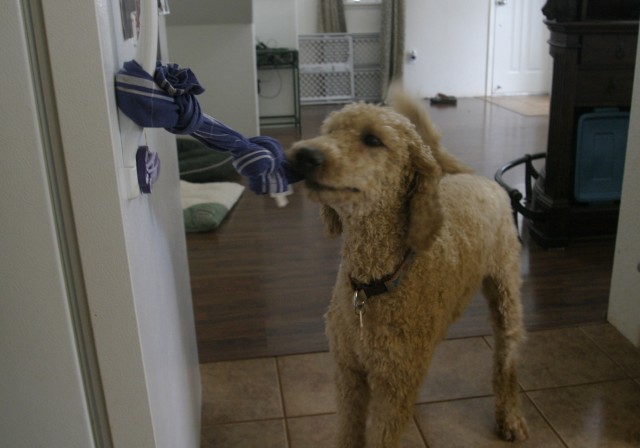
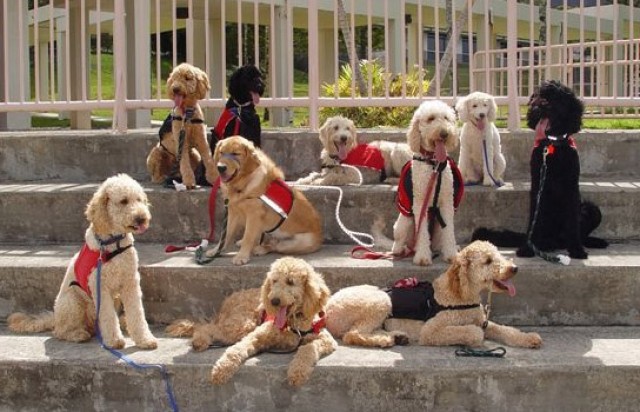
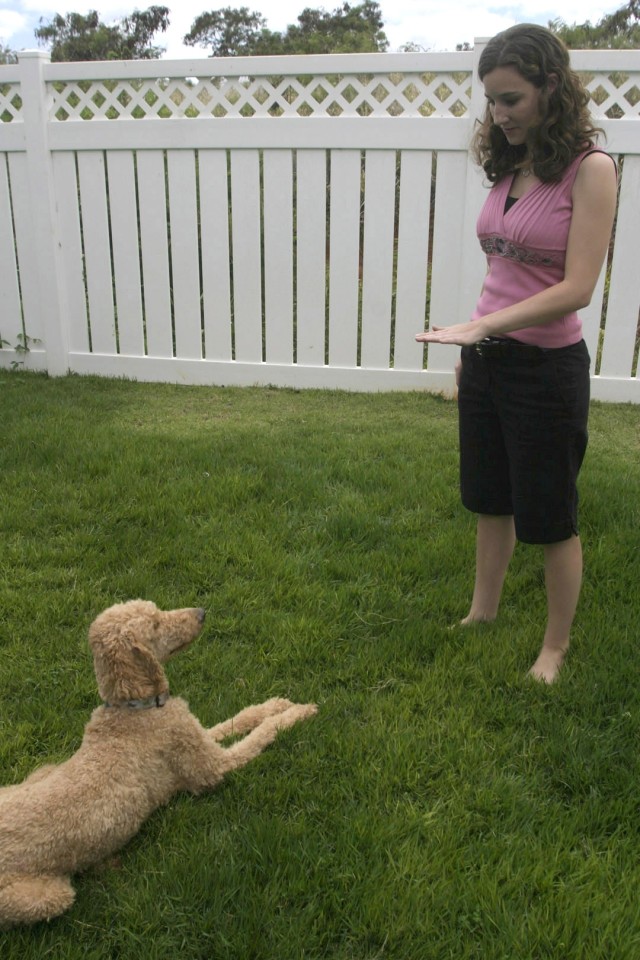
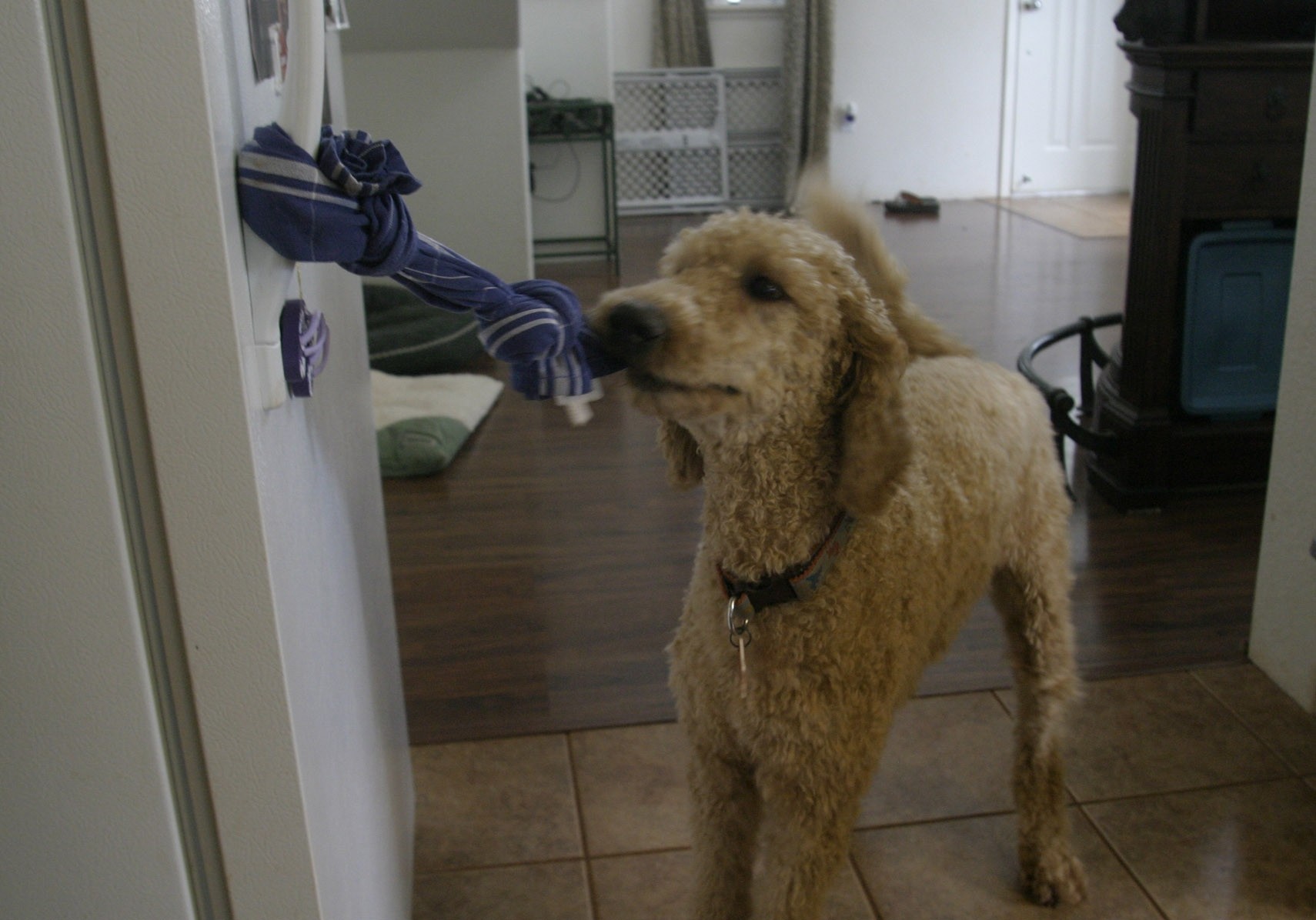
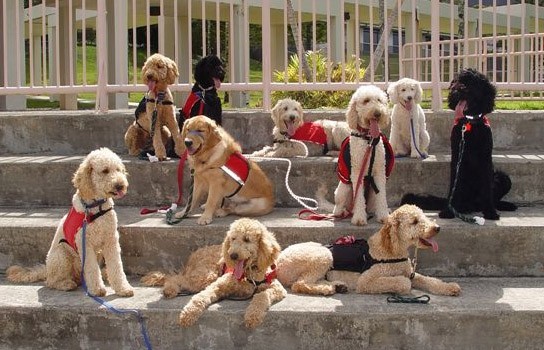
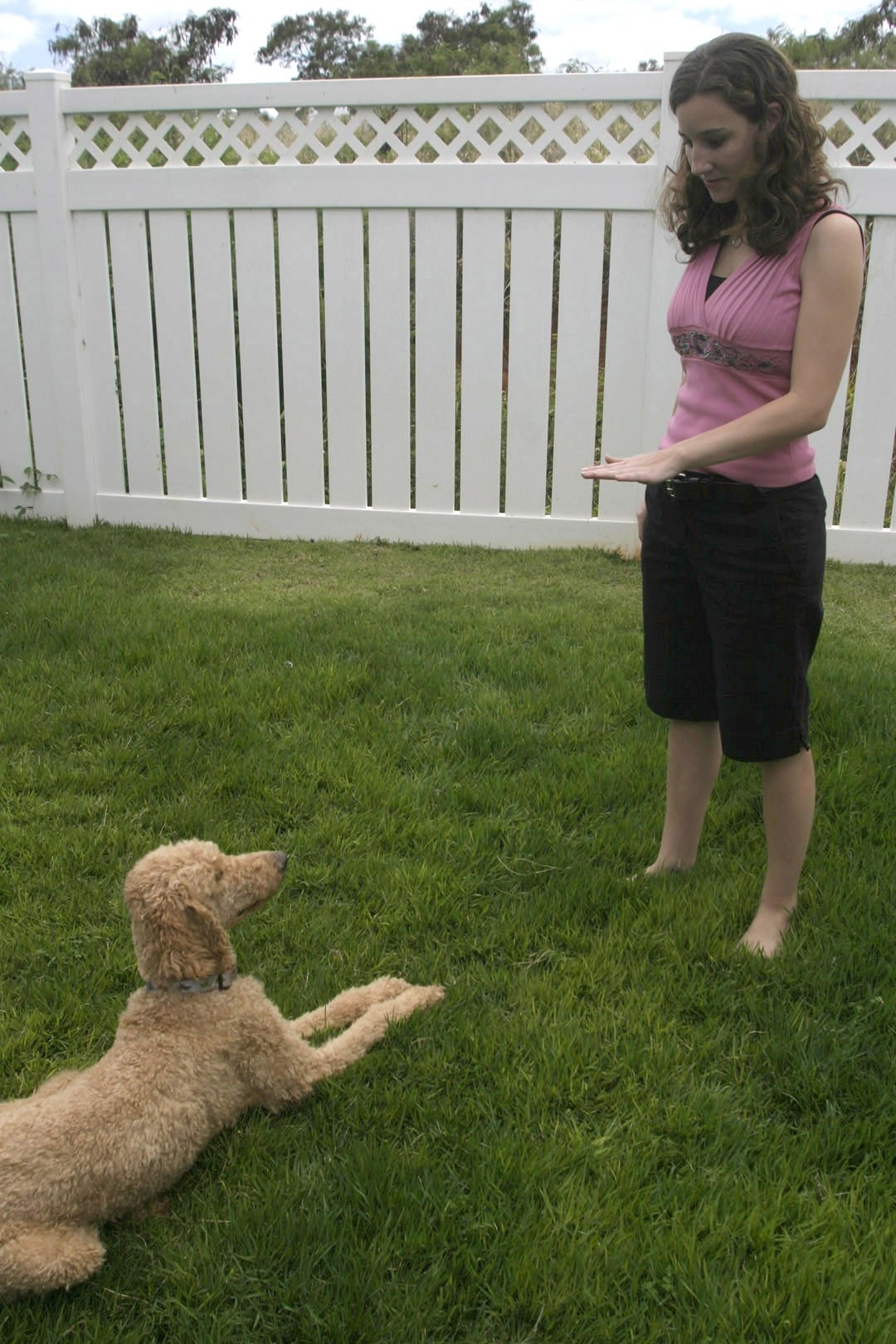
Social Sharing